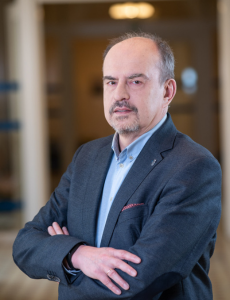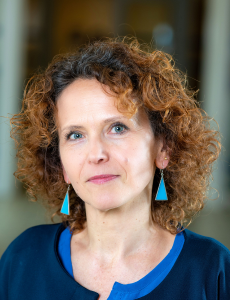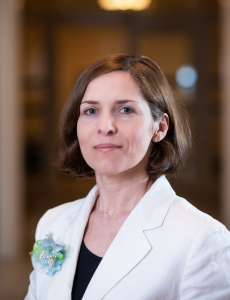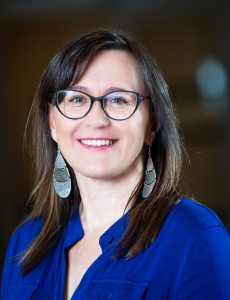WP 1 proposes to investigate the transformations of liberal democracy in response to the socio-political transformations and global challenges, i.e., energy transition, migration, at supranational (EU), national (national states), and sub-national (i.e., European cities) levels. At the core of our investigations lays the concept of the practices of democracy.
We propose three streams of research:
1. Future of democracy – narratives, legitimation and contestation
The reflection and investigation of the crisis of democracy have become a reoccurring theme in political and social studies over the last few decades. In the context of the various recent challenges (e.g. mass migration, COVID, Russian aggression in Ukraine) and noticeable alteration of democratic order in some the European countries (i.e. European backsliding/illiberal turn in Hungary and Poland), the question about the future of democracy in Europe becomes particularly urgent. Responding to such question this task aims to investigate how the future of democracy is narrated, legitimized, and contested in different spaces of the European and national public spheres.
2. Local and national dynamics of doing democracy in the urban public spaces
Cities are the most important terrain for encountering natives and immigrant populations in Europe. On the one hand, the cities attract people as they offer job places, public and private social infrastructure. On the other hand, there are many problems faced by urban communities, such as socio-economic inequalities, the precarious situation of many groups living in cities, exclusive forms of local democracy, excessive consumption, privatization of space, displacement of various forms of local cultures, urban sprawl and environmental pollutions. The post-pandemic consequences, the war in Ukraine, and the climate crisis both intensify these problems and stimulate social action to tackle the crisis. There are many examples of locally enacted practices of care “for public space” and “in public space”, that address the problems of vulnerable groups. The task aims to create a virtual platform to discuss the relationships between local and national dynamics of doing democracy in urban public spaces and to share experiences and knowledge between researchers representing societies and cities different in terms of immigration paths, challenges, and responses.
3. Framing the energy future by the EU policy narratives: challenges of intertwined processes of democratisation, decarbonisation, digitalisation
Among the most vibrant public discourses on transition are energy issues, particularly the shift from fossil fuels to renewable energies. These processes are of different dynamics and, on a global scale, are still insufficient in the context of climate change mitigation. While the sociotechnical nature of energy transition and the need for a deep social change (including redefining relations between humans, human nature, and human-nonhuman actors) has been recognized, envisioning the post-transition world itself and its impact on the broader socio-cultural system and the democratic order are less frequently an object of scientific investigation. The proposed project aims to fill in that gap and provide answers to the question about the impact of the energy transition of future of the democracy in the EU and beyond.

Andrzej Bukowski – associate professor at the Institute of Sociology of Jagiellonian University. His main research interests include regionalism, local and regional development, democracy and civil society, urban studies, and social theory. He has been a participant in or co-ordinator of over a dozen scientific research projects funded by Polish and international bodies: the State Committee for Scientific Research, the National Science Centre, the European Union, the World Bank, and other institutions. Currently he is investigating the possibilities of empirical applications of the theory of social practice (TSP) in various research areas. (https://orcid.org/0000-0003-0805-5586)

Marta Smagacz-Poziemska is an associate professor of sociology at the Institute of Sociology of the Jagiellonian University. In research, she focuses on urban processes, local development, urban communities, and citizen participation. She participated in several research projects and currently, she is a PI of the NCN project “Normality under uncertainty. Praxeological approach in research on the (re)production of 'normal' urban life” and “Fashion & Food synergy for sustainability” (Erasmus+). She was a coordinator of the Research Network 37 (Urban Sociology) of the European Sociology Association in 2015-2017 and a member of the Scientific Advisory Board of the JPI Urban Europe. For nearly 20 years - as an expert, researcher, and moderator - she has been collaborating with local, regional, and international public institutions as well as non-governmental organizations. For the past 10 years, she has been co-organizing interdisciplinary student workshops called "New Space." (https://orcid.org/0000-0003-3467-5930)

Aleksandra Wagner obtained her Ph.D. in sociology in 2008 and currently works as an associate professor at the Institute of Sociology, Jagiellonian University in Krakow. She co-led the MA programme in social communication. Recently, she completed a research fellowship at Leverhulme Center for the Future of Intelligence, Cambridge University. She is a scientific consultant at Capturing Invisible® Lab (https://imagine-future.project.uj.edu.pl/ ). She is the head of the Dialogue for Policy research group and a member of the board of Research Network 12 “Society and Environment” in the European Sociological Association. Since 2014 she has co-organized a biannual conference on “Energy and Society”. She worked as a Work Package leader and co-leader in 5 international research projects (Horizon 2020, Horizon Europe, Oxford Noble Foundation).
Aleksandra’s scientific interest focuses on social aspects of energy transition, narratives of change, and energy discourses. She published two books: Trust in Media: Press self-describing in the crisis situations and Visible and invisible: Nuclear Energy, Shale Gas and Wind Power in the Polish Media Discourse, and numerous chapters devoted to energy discourses and public dialogue. She authored an co-authored several research papers published by Energy Policy, Energy Research and Social Science, Science and Public Policy, Nature&Culture, Sociology of Health and Illness, Future, Current Sociology, Frontiers in Energy Research. (https://orcid.org/0000-0002-6465-5597)

Katarzyna Zielińska is an Associate Professor at the Institute of Sociology of the Jagiellonian University in Kraków. Her academic interests focus on a few areas: religion, gender, and democracy in Central Eastern European societies, (post)secular European societies as well as transformations of collective identities in CEE in the context of the European Union. She has published numerous articles in Polish and international academic journals (e.g. East European Politics and Societies, Religion, State and Society, Culture, Health & Sexuality). She has authored two monographs and co-edited a few multi-author monographs. She participated in several research projects. Currently, she is involved in two EU-funded projects SHAPEDEM-EU. Rethinking and Reshaping the EU’s democracy support in its Eastern and Southern Neighbourhood and The Representative Disconnect: diagnosis and strategies for Rectification. (https://orcid.org/0000-0002-8356-8800)

